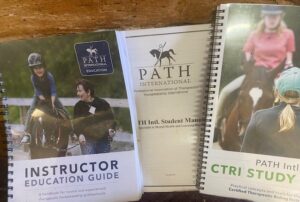 I am considering attempting to become a certified therapeutic riding instructor (CTRI), a process which takes at least two years in the normal course, and involves everything from learning first aid to mucking stalls to spending a lot of time working with seasoned instructors.
I am considering attempting to become a certified therapeutic riding instructor (CTRI), a process which takes at least two years in the normal course, and involves everything from learning first aid to mucking stalls to spending a lot of time working with seasoned instructors.
If I go down this road, I will have my nose in books such as the Professional Association for Therapeutic Horsemanship International Standards for Certification and Accreditation. This 241-page tome makes a lot of my law school texts look like light reading by comparison. I will learn how to teach a student about emergency dismounts, though some of my students might be paraplegic or deaf. I must become comfortable fitting helmets, accommodating G-tubes in the riding milieu, and managing as many as three volunteers per rider…
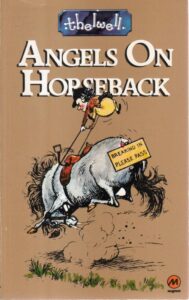 It’s a lot. I ask myself: Grace, you are Not Young, you are no sort of athlete, you have little formal training in disabilities, mental health, OR riding pedagogy. WHAT are you getting yourself into?
It’s a lot. I ask myself: Grace, you are Not Young, you are no sort of athlete, you have little formal training in disabilities, mental health, OR riding pedagogy. WHAT are you getting yourself into?
My initial argument in rebuttal to those reasonable doubts (because lawyer), is: I passed the bar on the first try after four years of working full time and going to law school five nights a week. I might be able wrangle this CTRI thing. Though really, passing the bar isn’t that big of an accomplishment. Most people who make the attempt succeed on the first go.
When did I acquire my first real increments of backbone and confidence?
You can probably anticipate my answer to that question: When I was a single mom with a baby to care for, going for three years on little sleep, managing the money, the 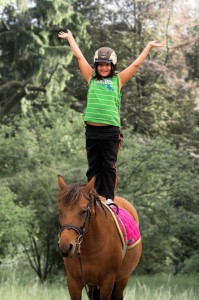 mothering, the everything, and more or less getting it all done. I look back on that phase of my life and just shake my head, but good on me for enduring and to a modest extent conquering the challenges before me. (And I readily admit, I enjoyed a ton of privilege in those years too, and I largely brought those challenges on myself.)
mothering, the everything, and more or less getting it all done. I look back on that phase of my life and just shake my head, but good on me for enduring and to a modest extent conquering the challenges before me. (And I readily admit, I enjoyed a ton of privilege in those years too, and I largely brought those challenges on myself.)
In any case, I did not reflexively think of the young, single mom years as my biggest achievement, my biggest bona fide in the “can handle challenges” category. I have no diploma, no professional memberships, no certifications to validate my sense of accomplishment, despite what those years proved to me about my stores of determination and ingenuity.
As far as external validation goes, my biggest feat of grit is a societal so-what, and I expect that’s true for many of us, especially women. We got stuff done, we know what it took to check all the boxes, and now you’d best not mess with us unless you come to
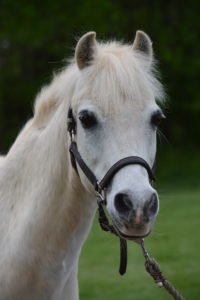 the battle of grit armed with a lifetime of stamina, wiliness, humor, and love, because those end up being the merit badges that really, truly do matter.
the battle of grit armed with a lifetime of stamina, wiliness, humor, and love, because those end up being the merit badges that really, truly do matter.
What experiences showed you what you are made of, even if no brass band or ticker tape parade celebrated the moment with you?
PS: A Gentleman Fallen on Hard Times is now available as an audio book from the web store. More Lord Julian audio is on the way!







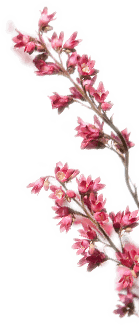

 Once upon a time, I was making a bad job of being pregnant. I was sooo morning sick, the whole way through, though working full time and going to law school five nights a week might have had something to do with my misery (and I was broke). I fainted regularly and I was anemic even on mommy-vitamins. I do not recall that time in my life fondly at all.
Once upon a time, I was making a bad job of being pregnant. I was sooo morning sick, the whole way through, though working full time and going to law school five nights a week might have had something to do with my misery (and I was broke). I fainted regularly and I was anemic even on mommy-vitamins. I do not recall that time in my life fondly at all. What I got instead was wisdom. Said my sister, who is a mom four times over, unto me: This is not the time to castigate yourself, second guess your instincts, or run yourself down for past choices. You have done the best you could. Right now, just keep around you the people who are supportive and tell anybody else to get lost. That’s your focus and your job. The rest of it can all wait until you have the bandwidth to deal with it.
What I got instead was wisdom. Said my sister, who is a mom four times over, unto me: This is not the time to castigate yourself, second guess your instincts, or run yourself down for past choices. You have done the best you could. Right now, just keep around you the people who are supportive and tell anybody else to get lost. That’s your focus and your job. The rest of it can all wait until you have the bandwidth to deal with it. I’m struck in hindsight by how much I did not need information in that moment. I had a ton of facts in hand–how motherhood impacts earning capability (not for the best, in too many cases), how single parenting impacts children (ditto), what my options were if I had to drop out law school because the pregnancy became high risk (which it did do, of course). Facts and knowledge and data had reached the limit of their helpfulness and were in fact, making the problem worse.
I’m struck in hindsight by how much I did not need information in that moment. I had a ton of facts in hand–how motherhood impacts earning capability (not for the best, in too many cases), how single parenting impacts children (ditto), what my options were if I had to drop out law school because the pregnancy became high risk (which it did do, of course). Facts and knowledge and data had reached the limit of their helpfulness and were in fact, making the problem worse.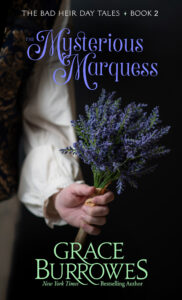 summarized in a social media comment, but something about her deep understanding of me–with whom she had played Barbies by the hour–illuminated what she chose to say and how she said it.
summarized in a social media comment, but something about her deep understanding of me–with whom she had played Barbies by the hour–illuminated what she chose to say and how she said it. I was sitting in an airport not long ago with time on my hands (three hour delay), and so I watched the passing scene. I noticed how unique our footwear has become.
I was sitting in an airport not long ago with time on my hands (three hour delay), and so I watched the passing scene. I noticed how unique our footwear has become. Mass produced. This got me thinking about clothing in Regency England, which might have been “ready-made,” a new concept for the time, but was in the vast majority “bespoke.” Your clothing was created, or at least altered, to fit you. If your household had any sort of means, you chose the fabric and the color (or your mama did), and the cut was designed for your particular dimensions. Even the London tailors turning out the standard gentleman’s morning coat had brand-specific patterns to distinguish their coats from the other guys’ and they measured each customer meticulously to ensure a perfect fit. (Just for fun, speaking of which, some
Mass produced. This got me thinking about clothing in Regency England, which might have been “ready-made,” a new concept for the time, but was in the vast majority “bespoke.” Your clothing was created, or at least altered, to fit you. If your household had any sort of means, you chose the fabric and the color (or your mama did), and the cut was designed for your particular dimensions. Even the London tailors turning out the standard gentleman’s morning coat had brand-specific patterns to distinguish their coats from the other guys’ and they measured each customer meticulously to ensure a perfect fit. (Just for fun, speaking of which, some I have in the entirety of my life, come across a few outfits that felt luscious on me, were the right colors for me, and made me feel more ready to take on the world. They flattered my physique and reinforced a persona I wanted to project. Part costume, part robes of state, and perfect for me. I have seen that mountaintop, though not often and not for decades.
I have in the entirety of my life, come across a few outfits that felt luscious on me, were the right colors for me, and made me feel more ready to take on the world. They flattered my physique and reinforced a persona I wanted to project. Part costume, part robes of state, and perfect for me. I have seen that mountaintop, though not often and not for decades.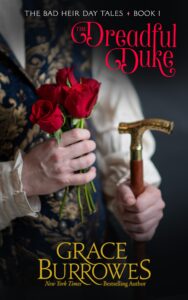 “How do I want to look?” was a different question for them than it has been for me. I have considered the query successfully answered if I looked “presentable.” Maybe it’s time to up my game in the sartorial department, and now that I am less wide, maybe the project has a better chance at happy outcomes. I look good in raspberry, for example (most people do). I like purple with dashes of green and peach…
“How do I want to look?” was a different question for them than it has been for me. I have considered the query successfully answered if I looked “presentable.” Maybe it’s time to up my game in the sartorial department, and now that I am less wide, maybe the project has a better chance at happy outcomes. I look good in raspberry, for example (most people do). I like purple with dashes of green and peach… By now, I hope everybody has seen a video of skater Ilia Malinin’s world champion
By now, I hope everybody has seen a video of skater Ilia Malinin’s world champion Sherpa mountaineer Tenzing Norgay and New Zealander Sir Edmund Hilary did the impossible when, as part of the ninth British expedition to make the attempt, they summited Mount Everest.
Sherpa mountaineer Tenzing Norgay and New Zealander Sir Edmund Hilary did the impossible when, as part of the ninth British expedition to make the attempt, they summited Mount Everest. A broken barrier is an inspiration, for better or for worse. I’ve only broken one memorable barrier (so far), and that was when I was in eighth grade. I’d taken a year of home economics in seventh grade because it was “mandatory.” A semester of sewing, a semester of cooking. I already knew how to bake brownies, and I could stitch up a split seam. I did not consider that the first year of home ec had any value, and I wasn’t about to endure a second.
A broken barrier is an inspiration, for better or for worse. I’ve only broken one memorable barrier (so far), and that was when I was in eighth grade. I’d taken a year of home economics in seventh grade because it was “mandatory.” A semester of sewing, a semester of cooking. I already knew how to bake brownies, and I could stitch up a split seam. I did not consider that the first year of home ec had any value, and I wasn’t about to endure a second.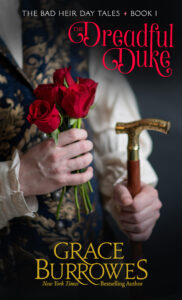 between music history and pre-law so I obtained degrees in both. I played both jazz and classical piano. I studied both Spanish and Latin in high school. Making one choice at age thirteen to color outside the prescribed lines led to other choices, and I am richer for having gone astray.
between music history and pre-law so I obtained degrees in both. I played both jazz and classical piano. I studied both Spanish and Latin in high school. Making one choice at age thirteen to color outside the prescribed lines led to other choices, and I am richer for having gone astray. I saw a post go by that made me think about how much more easily we were thrilled in childhood. Pizza for dinner was a thrill, Christmas morning was a big deal, the first snow flakes inspired our rapture, and school letting out was cause for giddy elation. We were thrilled by rainbows and cupcakes and sparklers… Life was wondrous (except when it wasn’t).
I saw a post go by that made me think about how much more easily we were thrilled in childhood. Pizza for dinner was a thrill, Christmas morning was a big deal, the first snow flakes inspired our rapture, and school letting out was cause for giddy elation. We were thrilled by rainbows and cupcakes and sparklers… Life was wondrous (except when it wasn’t). Do you know what’s truly wonderful? A leaf blower. I was on evening barn chores detail earlier this week, and one of the last things you do before lights out is use the blower on the aisle. All the little bits of hay and chaff and horse poo go whooshing down the aisle before you. You can make the dirt dance, ricocheting your dust devil off one wall into the other, and when you’re done–ten minutes later–that barn looks like Martha Stewart’s horse lives there.
Do you know what’s truly wonderful? A leaf blower. I was on evening barn chores detail earlier this week, and one of the last things you do before lights out is use the blower on the aisle. All the little bits of hay and chaff and horse poo go whooshing down the aisle before you. You can make the dirt dance, ricocheting your dust devil off one wall into the other, and when you’re done–ten minutes later–that barn looks like Martha Stewart’s horse lives there.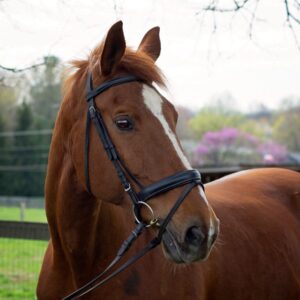 Pansies are wonderful–they scoff at snow. Shopping at the garden store is wonderful (IN MODERATION, Grace Ann). I got to provide a little assistance on a grant writing project this week, because federal procurement and I go way back. To use what I know in that regard was a real kick. That the landscaper is coming to till up my new forty-foot long pollinator strips (two of them) is great fun. That I found a glimmer of a plot idea for Lord Julian’s sixth tale is glorious.
Pansies are wonderful–they scoff at snow. Shopping at the garden store is wonderful (IN MODERATION, Grace Ann). I got to provide a little assistance on a grant writing project this week, because federal procurement and I go way back. To use what I know in that regard was a real kick. That the landscaper is coming to till up my new forty-foot long pollinator strips (two of them) is great fun. That I found a glimmer of a plot idea for Lord Julian’s sixth tale is glorious. Lately, I feel overbooked (though not yet overwhelmed). For no particular reason, a lot of to-dos have converged at once. The car needs new tires, somebody had better file both business and personal taxes, I’m at the end of my COVID booster window and contemplating plane travel (to see the new grandson, of course), and kitties need various kinds of attention from the vet. A lot of running around and feeling scattered.
Lately, I feel overbooked (though not yet overwhelmed). For no particular reason, a lot of to-dos have converged at once. The car needs new tires, somebody had better file both business and personal taxes, I’m at the end of my COVID booster window and contemplating plane travel (to see the new grandson, of course), and kitties need various kinds of attention from the vet. A lot of running around and feeling scattered.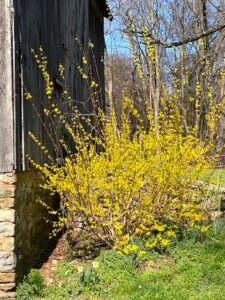 The sunlight is more abundant and brighter (before the leaves come out). The landscape is popping with colorful flowers and trees in bloom. I wake to sunshine in my room, even after the time change (all together: Boo, Hiss, on the time change). I spend less energy wrangling fire wood or simply maintaining body temperature.
The sunlight is more abundant and brighter (before the leaves come out). The landscape is popping with colorful flowers and trees in bloom. I wake to sunshine in my room, even after the time change (all together: Boo, Hiss, on the time change). I spend less energy wrangling fire wood or simply maintaining body temperature. The beautiful flowers and their bright colors. (Somebody should have pruned that forsythia bush by the barn. I wonder who it could be?). The pleasure of not having splinters in my fingers nigh daily from feeding the wood stove its many meals per day. The litter boxes going for days without use because it’s nice outside. The smell and feel of sun-dried laundry. The joy of working in my flower beds. The beautiful sound of the stream greeting me first thing in the morning and the equally lovely chorus of birdsong.
The beautiful flowers and their bright colors. (Somebody should have pruned that forsythia bush by the barn. I wonder who it could be?). The pleasure of not having splinters in my fingers nigh daily from feeding the wood stove its many meals per day. The litter boxes going for days without use because it’s nice outside. The smell and feel of sun-dried laundry. The joy of working in my flower beds. The beautiful sound of the stream greeting me first thing in the morning and the equally lovely chorus of birdsong.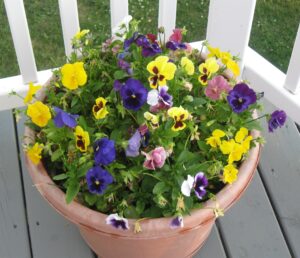 For now though, I can put my tweezers away, and be grateful not to need them. I can ease up on the litter-box patrol (some), I can dress in less than three layers (whee!), and leave stuff in the car without fear that it will freeze if I don’t unload it before morning.
For now though, I can put my tweezers away, and be grateful not to need them. I can ease up on the litter-box patrol (some), I can dress in less than three layers (whee!), and leave stuff in the car without fear that it will freeze if I don’t unload it before morning.
 Now that she is a mom, I’m bumped down the list of significant people in her life. If she had to vote either me or the baby off the island, I’d be packing my bags. There’s a new kid in town, and he displaces me to some extent, and that’s exactly how it should be.
Now that she is a mom, I’m bumped down the list of significant people in her life. If she had to vote either me or the baby off the island, I’d be packing my bags. There’s a new kid in town, and he displaces me to some extent, and that’s exactly how it should be. So this seemed like a good time to say to my bloggin’ buddies, be you a lurker, a regular, or in between, that I am grateful to have this place to share the occasional thought with you. We might have to give up some roles as life moves us on, or shift the way we inhabit those roles, but the fundamental joy of connection remains available to us. I appreciate the livin’ peedywhaddles out of your willingness to connect with me here, whether you stopped by today for the first time, left a few casual observations, wrote from the heart, or caught a few of my earliest posts more than ten years ago.
So this seemed like a good time to say to my bloggin’ buddies, be you a lurker, a regular, or in between, that I am grateful to have this place to share the occasional thought with you. We might have to give up some roles as life moves us on, or shift the way we inhabit those roles, but the fundamental joy of connection remains available to us. I appreciate the livin’ peedywhaddles out of your willingness to connect with me here, whether you stopped by today for the first time, left a few casual observations, wrote from the heart, or caught a few of my earliest posts more than ten years ago.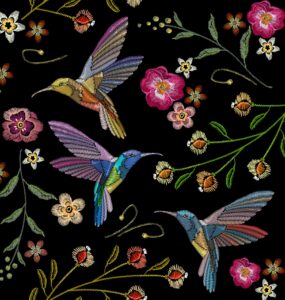 Someday I will have to hang up my spurs, and that will make me sad too, but to know I’m not the only person aging out of a beloved hobby, not the only woman who will miss flower gardening on her knees, is a very great comfort.
Someday I will have to hang up my spurs, and that will make me sad too, but to know I’m not the only person aging out of a beloved hobby, not the only woman who will miss flower gardening on her knees, is a very great comfort.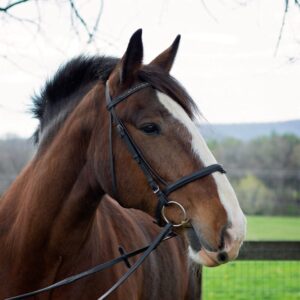 I haven’t been on a horse for about a year, and I was getting that “Now or never,” feeling about climbing back in the saddle. I dislike “slow grief” situations, where you aren’t absolutely certain of a loss, but it’s looking more and more sure as time goes on, but there’s no closure, no ritual, no moment when you can say, “That relationship or role or aspect of my life is gone for good,” except in hindsight.
I haven’t been on a horse for about a year, and I was getting that “Now or never,” feeling about climbing back in the saddle. I dislike “slow grief” situations, where you aren’t absolutely certain of a loss, but it’s looking more and more sure as time goes on, but there’s no closure, no ritual, no moment when you can say, “That relationship or role or aspect of my life is gone for good,” except in hindsight.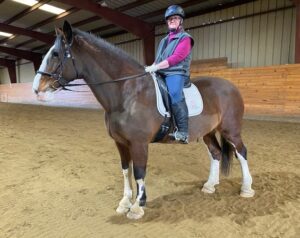 hesitate to ride with him even if he were available. I’m not in shape, and what muscle I had even a year ago has been compromised by weight loss. And the longer I’m away from riding, the more my courage for the sport ebbs. Horses are big, you know…
hesitate to ride with him even if he were available. I’m not in shape, and what muscle I had even a year ago has been compromised by weight loss. And the longer I’m away from riding, the more my courage for the sport ebbs. Horses are big, you know…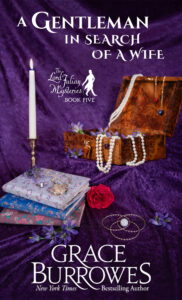 The day will come when I will hang up my spurs, but I rejoice greatly to say, today is not that day. The saddle can still be a happy place for me, and my gratitude for that knows no limits. I danced a little nip-up in the barn aisle I was so stupidly happy. Texted my daughter. Cried in the car. I don’t yet have to say, “I was a horse girl.” My paddock boots and helmet are back in the passenger’s seat, and there they will stay for now.
The day will come when I will hang up my spurs, but I rejoice greatly to say, today is not that day. The saddle can still be a happy place for me, and my gratitude for that knows no limits. I danced a little nip-up in the barn aisle I was so stupidly happy. Texted my daughter. Cried in the car. I don’t yet have to say, “I was a horse girl.” My paddock boots and helmet are back in the passenger’s seat, and there they will stay for now. I saw a Facebook post go by celebrating the knock-on effect of dopamine. The syllogism went something like this: I treated myself to a fish tank I could not easily afford, but I just love that fish tank. Every time I see those little fishies swimming in their beautiful little world, I am happy. On the strength of that happy (a dopamine hit), I was motivated to tackle a bunch of other stuff I had been putting off, like organizing my kitchen shelves, because dopamine isn’t just the reward chemical, it’s the motivation chemical. Now I’m going to follow my joy. Pretty soon my house will be clean, I’ll have a savings account, and nothing but blue skies in every direction.
I saw a Facebook post go by celebrating the knock-on effect of dopamine. The syllogism went something like this: I treated myself to a fish tank I could not easily afford, but I just love that fish tank. Every time I see those little fishies swimming in their beautiful little world, I am happy. On the strength of that happy (a dopamine hit), I was motivated to tackle a bunch of other stuff I had been putting off, like organizing my kitchen shelves, because dopamine isn’t just the reward chemical, it’s the motivation chemical. Now I’m going to follow my joy. Pretty soon my house will be clean, I’ll have a savings account, and nothing but blue skies in every direction. (as did most of their peers), and a father who got a migraine most Sunday nights before starting out the week at a job he was outwardly devoted to. Mom’s housekeeping would be called compulsive by current standards. If business comes before pleasure, when does pleasure ever get a turn?
(as did most of their peers), and a father who got a migraine most Sunday nights before starting out the week at a job he was outwardly devoted to. Mom’s housekeeping would be called compulsive by current standards. If business comes before pleasure, when does pleasure ever get a turn? And then I thought about how my day begins–with my now famous cup of jasmine green tea laced with manuka honey. I start the day with a treat, and with my treat in hand, I go to the computer and do some writer “work.” I use quotes, because I do love my job, and I would much rather do writer stuff than house work, yard work, marketing stuff (blech), or errands. As a matter of fact, when I started writing for pleasure, my migraines began to wane. Hmm.
And then I thought about how my day begins–with my now famous cup of jasmine green tea laced with manuka honey. I start the day with a treat, and with my treat in hand, I go to the computer and do some writer “work.” I use quotes, because I do love my job, and I would much rather do writer stuff than house work, yard work, marketing stuff (blech), or errands. As a matter of fact, when I started writing for pleasure, my migraines began to wane. Hmm. People born toward the bottom of large sibling piles tend to be adaptable, in the sense that they instinctively fill vacant roles in any group situation. If the moment wants levity, they crack a joke. If there’s an invisible elephant in the room, they name it. If the dishes are piling up, they do the dishes. The team is stronger for having such personalities on the roster, and not incidentally, the adaptable party finds a lot of ways to feel useful.
People born toward the bottom of large sibling piles tend to be adaptable, in the sense that they instinctively fill vacant roles in any group situation. If the moment wants levity, they crack a joke. If there’s an invisible elephant in the room, they name it. If the dishes are piling up, they do the dishes. The team is stronger for having such personalities on the roster, and not incidentally, the adaptable party finds a lot of ways to feel useful.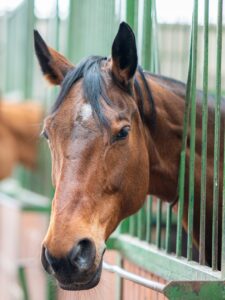 get this participant and their horse into the arena? What can we do now to be pre-ready for the lesson after that?” Maybe critical-path thinking comes from running my own law practice, or years of single-parenting, but I suspect it’s also just me. Vigilant about deploying resources effectively, sometimes to the point of missing the forest as I walk straight into a tree.
get this participant and their horse into the arena? What can we do now to be pre-ready for the lesson after that?” Maybe critical-path thinking comes from running my own law practice, or years of single-parenting, but I suspect it’s also just me. Vigilant about deploying resources effectively, sometimes to the point of missing the forest as I walk straight into a tree.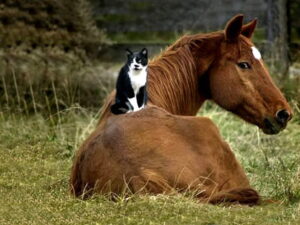 that your approach has a lot to recommend it, but let me give you some context, and another perspective to consider.” She managed to be critical without in any way leaving me feeling diminished or reprimanded.
that your approach has a lot to recommend it, but let me give you some context, and another perspective to consider.” She managed to be critical without in any way leaving me feeling diminished or reprimanded.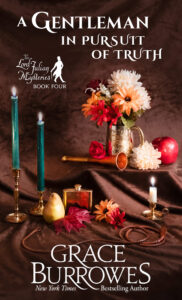 She couched her correction such that I felt valued, appreciated, and supported rather than shamed, and you know what helps me simmer down the very best? Feeling valued, appreciated, and supported, that’s what.
She couched her correction such that I felt valued, appreciated, and supported rather than shamed, and you know what helps me simmer down the very best? Feeling valued, appreciated, and supported, that’s what.